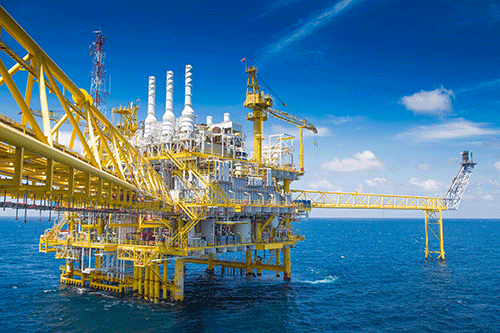Namibia has attracted global attention due to the quantity and quality of its recent oil discoveries in the Orange Basin.
These hydrocarbon discoveries have been a major factor for record foreign direct investments (FDI) made via equity injections for exploration activities as well as the uptake of intercompany loans.
FDI refers to an ownership stake in a foreign company or project made by an investor, company or government of another country. FDI is a key element in international economic integration as it creates stable and long-lasting links between economies.
Namibia Investment Promotion and Development Board (NIPDB) manager of investment attraction Selma Namutuwa said Namibia attracted N$73 billion in FDI inflows between 2021 and 2023, of which about 45%, which is N$33 billion, is attributable to the oil and gas sector.
“Namibia experienced a notable surge in FDI inflows during the second quarter of 2023, reaching N$13.5 billion. This marked the highest level observed in more than 10 years. The substantial increase was primarily propelled by investments in mineral exploration, hydrocarbons (oil and gas), and the acquisition of Namibia Breweries Limited (NBL) by Heineken,” she said.
The manager made these remarks last week during the Tanzania-Namibia investment and trade forum. Namibia and Tanzania have a long-standing relationship, grounded on political and economic cooperation. This forum was aimed at enhancing investment and trade cooperation between the two countries, particularly in the agriculture (livestock), mining, tourism and fishing sectors.
According to FDI Intelligence, which evaluates FDI and macroeconomic trajectories of the top 50 destinations worldwide, Namibia has registered a high investment momentum for the year. FDI Intelligence identifies leading nations in FDI and macro-economic growth as the world struggles with patchy post-Covid recovery.
“Over the year, Namibia’s direct investment liabilities rose mainly due to equity injections for oil and gas exploration, and appraisal activities. Lower FDI inflows were observed on quarterly basis on account of a reduction in the uptake of intercompany loans extended to domestic subsidiaries operating in the mining sector, as well as lower retained earnings by foreign-owned entities,” stated the Bank of Namibia in its quarterly bulletin.
Namibia announced its first noteworthy oil discoveries off the coast by Shell and TotalEnergies in 2022. Once the commercial viability of these discoveries are verified, these hydrocarbon detections have the potential to benefit the domestic economy with billions of dollars in revenue.
Furthermore, Namutuwa told potential investors at the gathering that Namibia’s mineral beneficiation strategy advocates local value-addition in order for more people to benefit throughout the entire value chain from the country’s national resources.
Promoting the country, she said investment opportunities in the mining sector currently lie in exploration of mineral deposits, processing of critical raw material, and general and specialised services.
Namutuwa also promoted Namibia’s meat sector, urging investment opportunities in a range of aspects, including feedlot development, animal fodder and feed production scheme, meat-processing (value-addition hub) and corned meat production (cannery).



